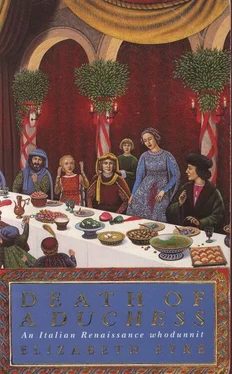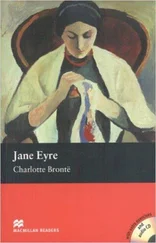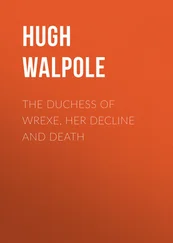Elizabeth Eyre - Death of a Duchess
Здесь есть возможность читать онлайн «Elizabeth Eyre - Death of a Duchess» весь текст электронной книги совершенно бесплатно (целиком полную версию без сокращений). В некоторых случаях можно слушать аудио, скачать через торрент в формате fb2 и присутствует краткое содержание. Год выпуска: 0101, Жанр: Исторический детектив, на английском языке. Описание произведения, (предисловие) а так же отзывы посетителей доступны на портале библиотеки ЛибКат.
- Название:Death of a Duchess
- Автор:
- Жанр:
- Год:0101
- ISBN:нет данных
- Рейтинг книги:5 / 5. Голосов: 1
-
Избранное:Добавить в избранное
- Отзывы:
-
Ваша оценка:
- 100
- 1
- 2
- 3
- 4
- 5
Death of a Duchess: краткое содержание, описание и аннотация
Предлагаем к чтению аннотацию, описание, краткое содержание или предисловие (зависит от того, что написал сам автор книги «Death of a Duchess»). Если вы не нашли необходимую информацию о книге — напишите в комментариях, мы постараемся отыскать её.
Death of a Duchess — читать онлайн бесплатно полную книгу (весь текст) целиком
Ниже представлен текст книги, разбитый по страницам. Система сохранения места последней прочитанной страницы, позволяет с удобством читать онлайн бесплатно книгу «Death of a Duchess», без необходимости каждый раз заново искать на чём Вы остановились. Поставьте закладку, и сможете в любой момент перейти на страницу, на которой закончили чтение.
Интервал:
Закладка:
He saw it, after scrutinising the wall to the side of the stairs on the way down (a fresco obliterated by the grease of years of passage) and the nail which had held the cloth. He saw even the street outside the door, a side lane, narrow and dark, with no inhabitant but an old man walking away with fragile slowness in the rutted mud, and a cur tormenting his heels. The emissary was minutely interested in a pile of horse dung near the door, and by the information, delivered with emphasis and repetition and by several voices, that the nightsoil of the household was conveyed away every week on this very day to the master’s farm in the country, and by a dungcart left in this very lane the night before to be collected this very morning. Farm men brought the clean cart, hitched the horse to the full one, and took it away. The clean cart, the emissary was informed, that would prove the truth of what they told him, stood m the kitchen yard just round the corner. It had been dragged in there the moment the house was awake, as the master liked, they added, discovering Jacopo’s presence among them and bobbing their heads zealously.
Jacopo, seeing that the Duke’s emissary was not content with observing horse dung in the lane but was now strolling up the lane towards the corner, the street, and the yard gates, parted the servants after the manner of Moses with the Red Sea and bustled into the lane, grabbing up his velvet skirts and giving the dung all the room it needed.
‘You think they went this way?’
‘All possibilities are to be examined, my lord. The Duke was insistent.’
Jacopo’s mouth, opened perhaps for a protest, snapped shut. He adapted his step to the emissary’s. A cat, eating something fascinating in the dust, lifted its head, sped across the lane and vanished into a dark doorway whence came a sound of clattering pots and yawning.
Round the corner they found the tall gates of the kitchen courtyard open to the street beneath the brick arch of the wall, and a trio of burly men delivering jars of oil from a handcart. A smallish, vacant-looking man, not in livery but comprehensively clad in grime, stood watching, cradling and fondling a little woolly white dog in his arms. Jacopo speeded up and approached this man with pointing finger.
‘Where did you get him? Where?’
The man looked up in innocent surprise, his mouth falling open with the ease of long practice. There was straw and dust in his black beard.
‘It’s m’lady’s dog. Biondello.’
‘I know what it is. Where did you find it?’
The emissary, now at Jacopo’s side, extended a finger to scratch the top of the dog’s head, and withdrew it, nodding as though someone had made a useful statement.
‘Where did you find him?’ Jacopo spoke as one would address a large crowd in, say, an arena, and everyone except the small man and the emissary jumped. The small man did not jump because he was being shaken by Jacopo.
‘Foot of the wail, out there.’ He nodded at the street. He showed no resentment at the shaking and perhaps was grateful for the stimulus. Jacopo was the one now stunned and speechless.
The emissary said, ‘So the dog barked, after all.’
The lack-wit had large round eyes. He looked up at the broad-shouldered man in black.
‘Yes. Biondello had a good try.’
He rocked the dog in his arms, bending his head over it and crooning as a girl might do to her doll.
The movement allowed the dog’s head to fall back and showed the gash across its throat. Blood dabbled the fluff of the white chest and there was blood on its teeth.
‘Who’s a good little dog, then?’
A strange sound erupted from Jacopo, now rigid at the emissary’s side.
‘She’s been abducted! My daughter has been abducted! ’
Patently, it had needed the sight of the little dead dog to bring home to him the fact he had been trumpeting since dawn. Howling and weeping, he had to be led indoors by his sister and a knot of house servants. No sooner had the knot crammed itself in at the door than it burst out again and Jacopo appeared on the threshold pointing.
‘You! Benno! Out! Get out! Don’t show your face near my doors again!’
As he bundled himself back into the house, it was obvious that someone had made a blunder: the dog, the dismissed servant, or the master himself.
Chapter Two
The emissary, undisturbed by the disturbance, continued to look about him in the street and the courtyard, watched, from a prudent position outside the gates, by Benno caressing the dead dog. He examined the dungcart, its shafts up on a trestle, its lining of pitch far from clean, and finally he prepared to depart. He sent a message, by one of those who still found time to stare at him over the kitchen half-door, to present his compliments to their master and to tell him that a full report would be made to the Duke. At the courtyard entrance, Benno stood cuddling the dog so that its head was under his chin. He offered to fetch the emissary’s horse.
‘I have no horse.’
Nothing but incomprehension in the large, mud-brown eyes. ‘You’re the Duke’s man – master Sigismondo?’
‘I am, for the moment, the Duke’s man.’
‘Where’s your horse? Where’s your servant?’
‘I came on foot. You see more on foot. No servant. Servants talk too much.’ The deep voice was neutrally informative, neither kind nor unkind. The half-wit came closer, the dog seeming to squirm in his hands as he pressed it to him.
‘I’ll be your servant.’
The emissary considered this piece of opportunism.
‘I don’t talk too much,’ Benno offered.
After a moment the emissary said, ‘Show me where you found the dog.’
He quartered the ground in this vicinity, watched by Benno. The life of the street was now well established. People passed to and fro. An urchin offered to help look for the missing object, and moved about on his hunkers like a busy frog for as long as the large man searched. This willingness earned him a ruffle of the louse-encumbered mat that was his hair, and a small coin. The emissary then set off at a brisk stride, Benno trotting to keep up. They climbed the steep streets towards the Palace, whose bleak defensible walls rose like cliffs above the town. The emissary’s good clothes incited various sellers to importune him with offers of bread, water, olives, wine, dishes, knives, cloth, braid, jewellery, spices, confectionery, and their bodies. As the two came to the long ramp circling the castle wall up to the gate, and Benno paused at the sight in understandable discouragement, the emissary stopped too.
‘What do you intend to do with the dog?’
Benno put his head on one side. ‘I could bury it somewhere nice. Under a rose-bush. She’d like that.’
The emissary hummed. It might have betokened approval.
They set off up the ramp.
The Duke was in his chapel hearing Mass. He was also dictating to his secretary and looking over an architect’s drawing held up by a page. He turned his head at the moment the tall figure in black of Sigismondo lifted the curtain at the chapel doorway. The secretary was dispatched to bring him to the Duke, who extended a hand to be kissed and said, ‘So?’
The bell at the altar tinkled, rung by a round-faced child who was picking his nose with his free hand. The priest, aglitter with silk and gold in the candlelight, raised the Host. The Duke, his secretary, the page and Sigismondo touched knee to the marble floor and crossed themselves. After a few minutes with eyes closed, the Duke came abruptly to his feet and made for the door, his spurs jangling on the stone. A page waited outside with a cup; the duke disencumbered himself of the brocade curtain which had clung affectionately to his shoulder, and drank the cup off at one draught, filling the anteroom with a head-spinning smell of spiced wine.
Читать дальшеИнтервал:
Закладка:
Похожие книги на «Death of a Duchess»
Представляем Вашему вниманию похожие книги на «Death of a Duchess» списком для выбора. Мы отобрали схожую по названию и смыслу литературу в надежде предоставить читателям больше вариантов отыскать новые, интересные, ещё непрочитанные произведения.
Обсуждение, отзывы о книге «Death of a Duchess» и просто собственные мнения читателей. Оставьте ваши комментарии, напишите, что Вы думаете о произведении, его смысле или главных героях. Укажите что конкретно понравилось, а что нет, и почему Вы так считаете.










